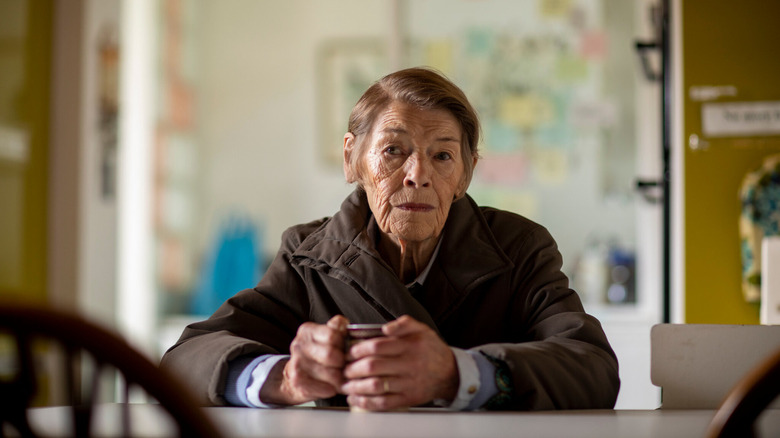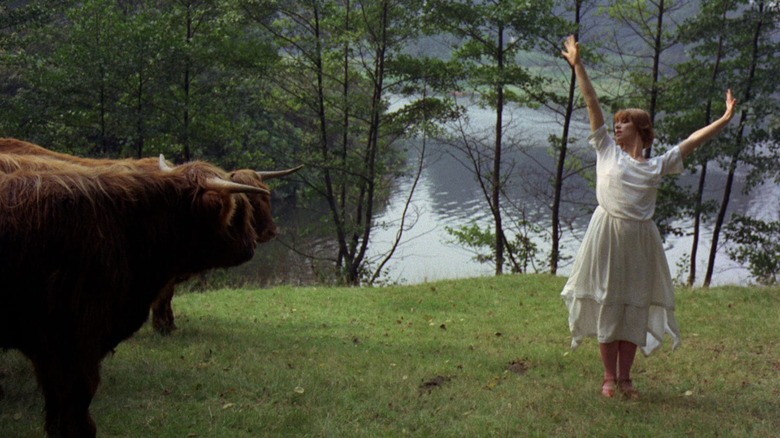Glenda Jackson, Legendary British Actor And Politician, Has Died At 87
The acting world has lost a titan. Glenda Jackson, a generational talent who swept through stage, screen, and politics over the course of her iconoclastic, seven-decade career, has died. Jackson's long-time agent Lionel Larner informed Variety that she died after a brief battle with illness this morning at her home in Blackheath, London, at the age of 87.
Jackson was one of the last living proponents, indeed embodiments of the radical, externally derived Brecht and Artaud-inspired style of acting which dominated throughout the late 1960s and '70s. You'd hardly know today that The Method had a fierce competitor for the souls of actors, given the numerous books, podcasts, tributes, and specials which have appeared chronicling the rise and reign of the psychoanalytic, internally-focused style that followed from Stanislavski. But when in Jackson's thrall, it seemed like there simply was no other way to act, that she had built the craft up alone, shaped it with her coarse hands, and breathed vigorous life into its lungs.
Stateside, Jackson will be remembered best for her Oscar-winning turns in two freewheeling films from the New Hollywood period. First is the earthy, frank, sensual and cerebral Gudrun in Ken Russell's "Women in Love," the first of Jackson's many collaborations with Russell on adaptations of the original earthy eroticist, D.H. Lawrence. The second is "A Touch of Class," a sparkling romcom in which she was originally cast opposite Cary Grant and upon the strength of her performance won the Best Actress Oscar in a shocking upset against the likes of Joanne Woodward, Ellen Burstyn, and Barbra Streisand.
In her native England, Jackson will be remembered for much, much more.
A fierce actor and advocate
Glenda Jackson was born to working class parents in a town on the outskirts of Liverpool in 1936. The pre-wartime economy was particularly rough on the working poor, and the strides her parents made to secure a better life for Jackson made a life-long impact on her. Jackson became an active and outspoken member of the Labour Party in her teens, eventually becoming a vocal sponsor of the Anti-Nazi League and an outspoken reproductive rights advocate.
At the height of her post-Hollywood stage career, Jackson ducked out of the spotlight and ran for a seat in Parliament. She officially retired from acting in 1991 after winning an election to represent the London-area parliamentary constituency of Hampstead and Highgate on behalf of the Labour Party. Jackson fought savagely for the uplift of working people, women, and immigrants against the "scourge" of Margaret "Thatcherism," as she characterized it in a blistering address on the event of the former prime minister's passing.
Few actors-turned-politicians can boast as successful a transition as Jackson's, and most of those who can (looking at you, Governator) can't boast about the clarity or moral force of their politics. Jackson brought the same candor, rigor, and smoldering brimstone to her time in Parliament that defined her best characters. Nina in Eugene O'Neill's "Strange Interlude," Alex in the taboo-busting queer character study "Sunday Bloody Sunday," and after her 2015 retirement, the elusive role coveted by the world's most formidable performers: King Lear.
Jackson stunned in the ageless parable of paternal rage and folly in a sleek, post-modern deconstruction staged in 2016 by Deborah Warner. As Boris Johnson rose to power in England and Trump in America, Jackson reminded us all one last time and forevermore that passion, when yoked to political conviction, truly can remake the world. She will be sorely missed.

